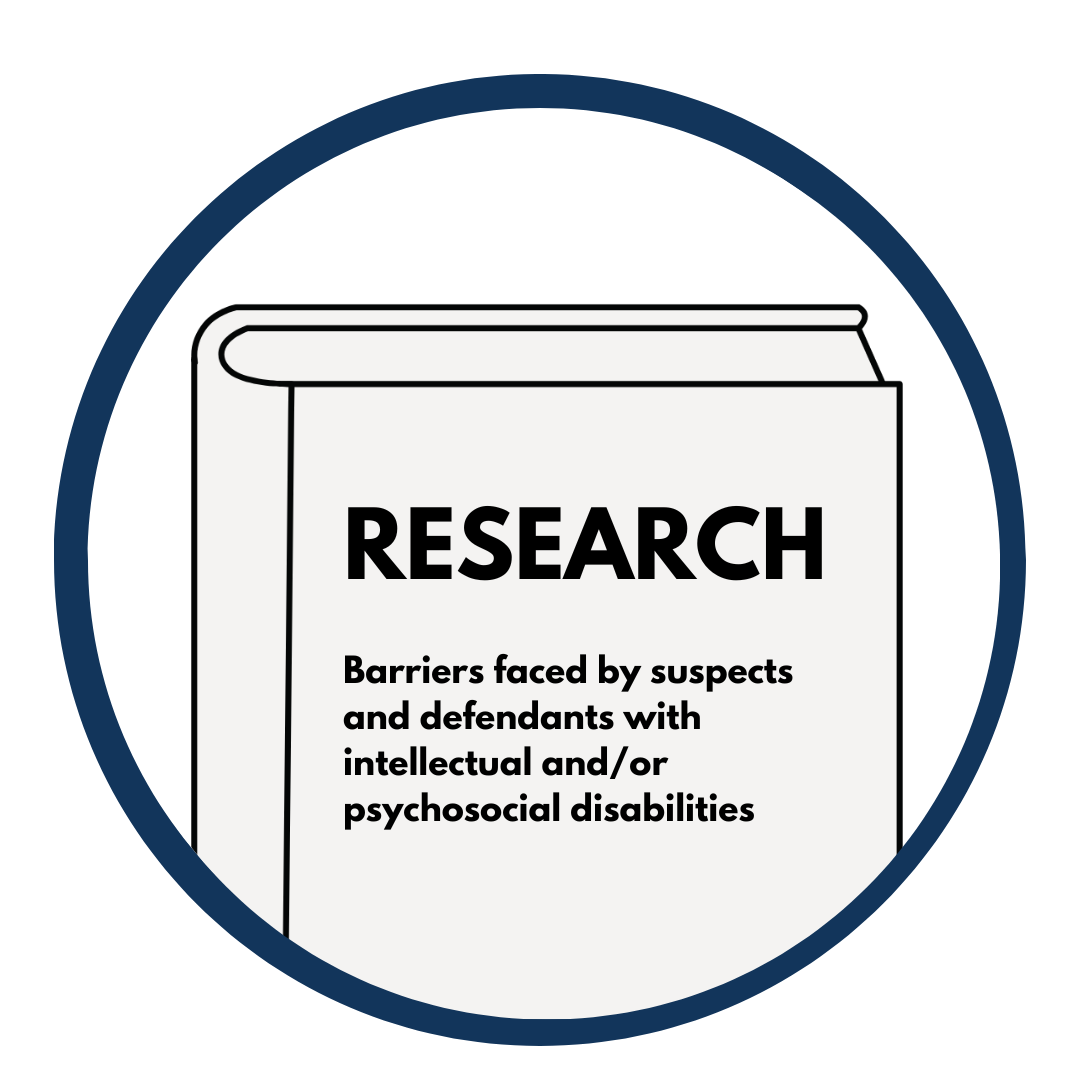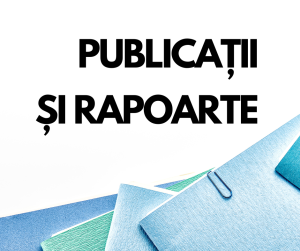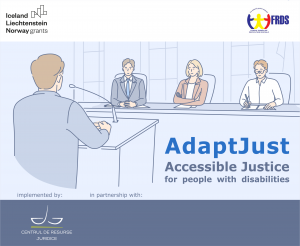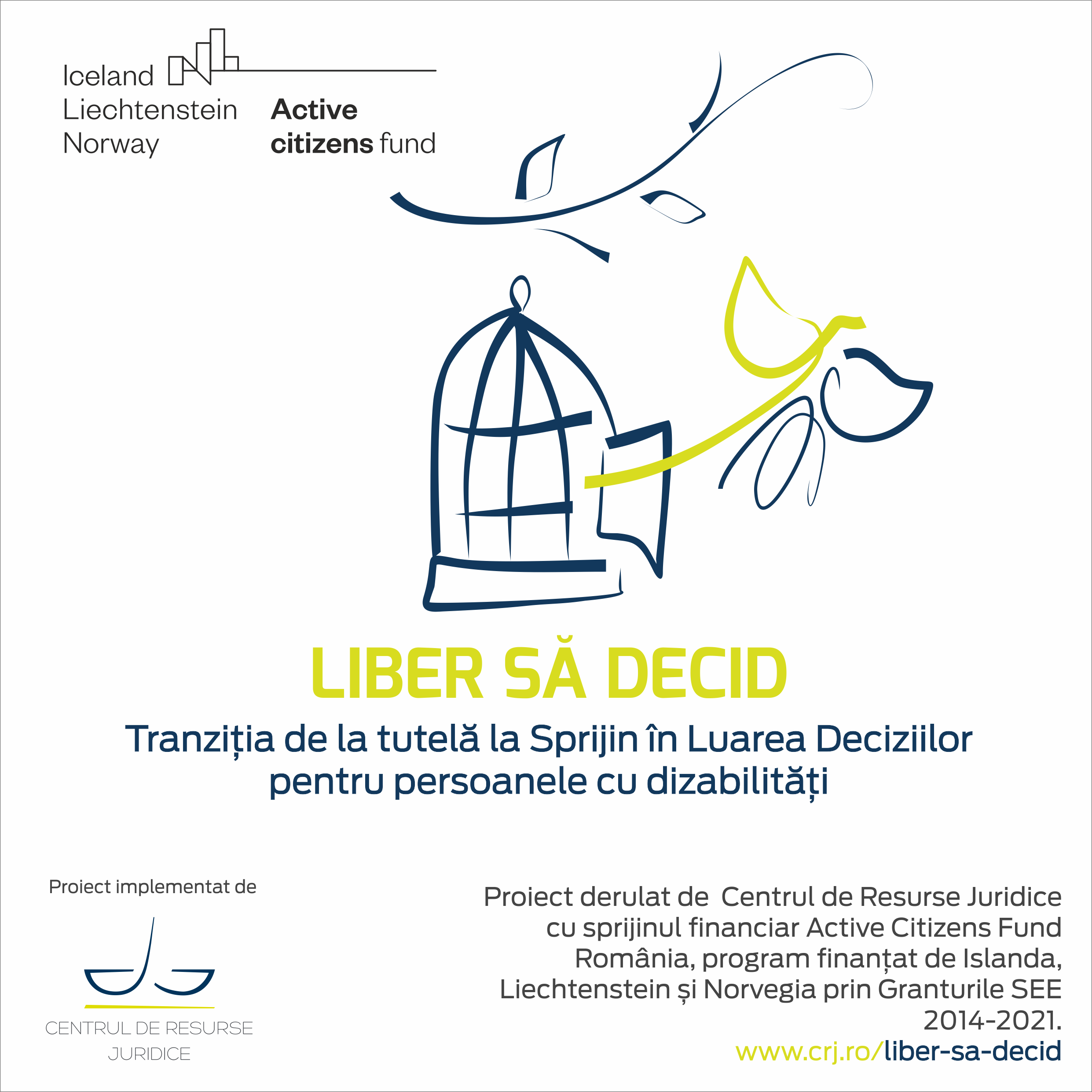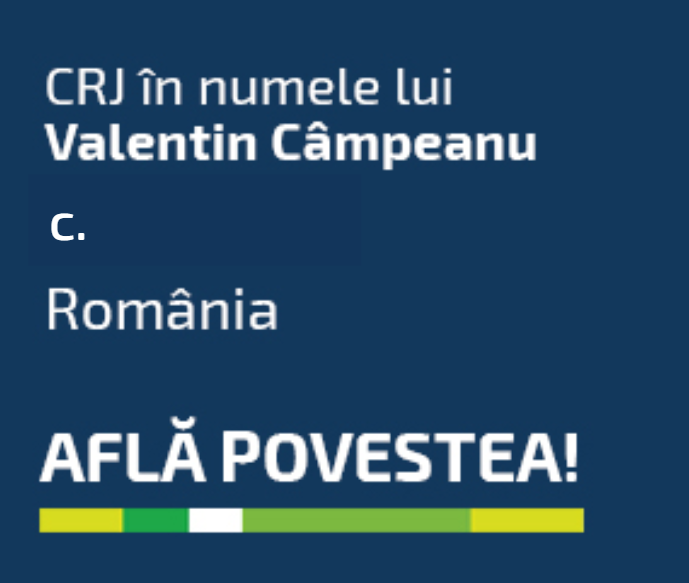Centre for Legal Resources (CLR) has released the briefing paper on the barriers faced by defendants with intellectual and/or psychosocial disabilities in the criminal justice system in Romania. The methodological approach combined documentary research and fieldwork (interviews). The methodological approach combined desk research and field work. The desk research involved the identification and analysis of relevant policy documentation (e.g., national legislation, policy, strategies, reports, statistics) regarding the provision of reasonable and procedural accommodations in the justice system for persons with disabilities. For the fieldwork, 16 interviews were conducted at national level, both with self-representatives and with several specialists from the criminal justice system, social work and NGOs.
The aim of this national briefing paper is to allow an assessment in Romania of:
- How and what barriers defendants with intellectual and psychosocial disabilities face in the criminal justice system in accessing information, support and procedural accommodations that prevent them from participating, and
- To what extent and what ways is there law, policy and/or practice (including promising practices) that enable defendants with intellectual and/or psychosocial disabilities to overcome these barriers, particularly through provision of procedural accommodations?
Testimonies of people with disabilities
“The police did not inform me of my rights. Only after about 4 hours the public defender came and informed me of my rights.”
“At first it was okay. They were nice to me. The moment they took me to the station they started to make fun of me and laugh at the situation (at the act I had committed). They called me crazy. I wasn’t really asked what happened. There were only 2 policemen and one of them was writing what he wanted.”
“I didn’t like that they lied a lot (the police segment). They didn’t really listen to me and they wrote what they wanted anyway. At court they lied to me as well. They told me I was going for a psychological consultation and in fact they brought me here (psychiatric hospital and for safety measures).”
Testimonies of experts
“The problem is that it is not checked whether they understood. At the end (i.e. of the document containing the defendant’s rights), it usually says “I have taken note” – NOT that “I understand”.”
“The big challenge that these people face is that they cannot make themselves understood and the judicial authorities, who are dealing with a person with psychosocial and intellectual disabilities, do not know how to deal with such a situation, because there is no specialization.”
“I think that procedural adaptations exist only at a minimum level. Lately, they have come to the attention of professionals and public opinion, but at this moment they are at an embryonic level. Only a micro-field has been created for these people, but there is still a lot of room for development and evolution. Some adaptations are even regulated. I think that it is necessary to make them more procedural and to raise awareness among professionals in order to facilitate communication and access to justice for these people.”
What have we found?
- Romania continues to face problems in terms of effective access to justice for suspects and defendants with intellectual and/or psychosocial disabilities. No data is collected on how many people with disabilities face the justice system. This data could highlight the barriers encountered and possible solutions for people with disabilities to access justice effectively.
- A very important obstacle in the process of access to justice remains the lack of training of justice personnel. It emerged that the criminal justice professionals are insufficiently familiar with the notion of procedural accommodations and are thus unable to identify certain aspects of the administration of justice that violate the right of access to justice of persons with disabilities.
- The Romanian legislation provides medical confinement as a safety measure for persons without legal capacity who have committed a criminal offence. The CRPD Committee has recommended the removal of the safety measure of confinement into a psychiatric institution or compulsory medical treatment for persons who have been declared not criminally responsible on the grounds of “alienation” or incapacity (CRPD Committee (2015a, para. (20)).
- A case of good practice mentioned by several professionals is the AdaptJust courses organized by CLR.
What are the recommendations?
- There is a need to harmonise the national procedures and legislation with the European standards on creating an environment of equal conditions for people with intellectual and/or psychosocial disabilities with all citizens and to give them the opportunity to understand and be understood, so that access to justice is guaranteed to all. Support and accommodation rather than discriminatory assessment of capacity to understand and ability to be judged is also essential. The national legislation should be amended with express regulation of legal assistance for persons diagnosed with intellectual and psychosocial disabilities.
- Improve inter-institutional collaborations to ensure the CRPD implementation, involve more and work with disability organisations and people with disabilities. Creation of a platform for communication between professionals, that includes the INML[4], and the presence of a specialist to ensure safe communication between the professionals in the judicial system and the person with disabilities. For penitentiaries, there needs to be an outside person who has experience and specialization in working with people with disabilities and be available for collaborations.
- The lack of knowledge (from the most trivial to the most specific) among lawyers can substantially affect the fate of people with intellectual and/or psychosocial disabilities. The lawyer must be the first person who ensures that the fundamental rights and freedoms of their client are respected. With a complete lack of training in this area, it becomes impossible to ensure effective and unbiased access to justice for people with disabilities. There must be an obligatory specialization of lawyers to work with people with disabilities. Therefore, through the institutions responsible, the continuous training of magistrates and lawyers, in the field of access to justice of defendants with intellectual and/or psychosocial disabilities needs to be ensured, as well as sufficient funding to create a system of ongoing training for justice, medical and socia professionals who interact with people with intellectual and/or psychosocial disabilities.
- Adopt clear and effective procedures to be followed by the professionals whenever a person with intellectual and/or psychosocial disabilities faces the criminal justice system. Criminal justice professionals recommended the creation of guides and manuals, in order to facilitate the professional’s approach to people with disabilities. In practice, the police inform defendants of their rights, but practices vary, from written to verbal information, including un-accesibilized leaflets, which can be difficult to understand. They must ensure that defendants understand their rights correctly and provide written and verbal information as soon as they become suspects. Programmes and procedures should be drawn up to provide correct information to people with disabilities, and adapted according to the types and degrees of disability.
All 8 National Briefing Papers can be read here:
This briefing paper was developed by Centre for Legal Resources (Romania) within the project “Enabling inclusion and access to justice for defendants with intellectual and psychosocial disabilities” (ENABLE – 101056701 – JUST-2021-JACC).
The project seeks to promote access to justice and fairer criminal proceedings for defendants with intellectual and psychosocial disabilities in 8 EU countries:
- Romania (Centrul de Resurse Juridice)
- Portugal (Fenacerci – Federação Nacional de Cooperativas de Solidariedade Social)
- Czechia (Fórum pro lidská práva)
- Slovakia (Fórum pro lidská práva)
- Slovenia (PIC – Pravni center za varstvo človekovih pravic in okolja)
- Bulgaria (KERA Foundation)
- Spain (Confederación Plena Inclusión España)
- Lithuania (Mental Health Perspectives)
The project is coordinated by the Validity Foundation (Hungary), while the Model Disability Bench Book is developed by the International Commission of Jurists – European Institutions (Belgium).

